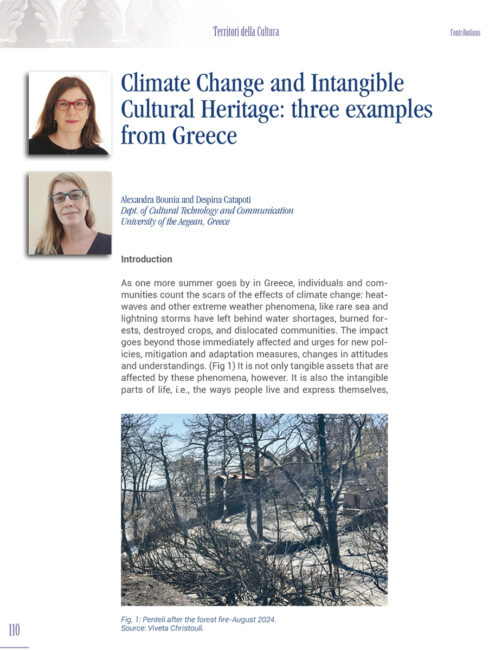As one more summer goes by in Greece, individuals and communities count the scars of the effects of climate change: heatwaves and other extreme weather phenomena, like rare sea and lightning storms have left behind water shortages, burned forests, destroyed crops, and dislocated communities. The impact goes beyond those immediately affected and urges for new policies, mitigation and adaptation measures, changes in attitudes and understandings. It is not only tangible assets that are affected by these phenomena, however. It is also the intangible parts of life, i.e., the ways people live and express themselves, their skills and knowledge, their communal practices, and beliefs.
In the article “Climate Change and Intangible Cultural Heritage: three examples from Greece” Alexandra Bounia and Despina Catapoti focus on three case studies, all chosen based on their relation to food from the National Inventory of ICH in Greece2: (a) the “mandras” in Lemnos, an island in the northeastern part of the Aegean Sea; (b) traditional practices of wild edible plants and (c) the agricultural and dietary tradition of carob, both on the island of Crete.
The paper has been published in “GreenHeritage. The Impact of Climate Change on the Intangible Cultural Heritage”, a special issue of the journal “Territori della Cultura”.
The issue is available at: https://www.univeur.org/cuebc/index.php/it/territori-della-cultura/archvio-numeri/1725-territori-della-cultura-57-anno-2024

